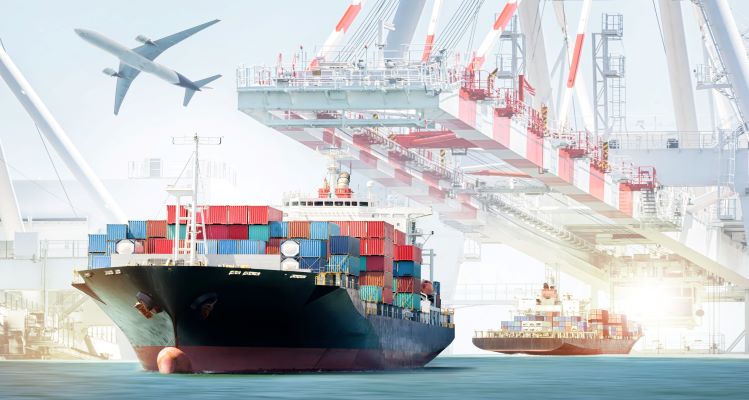Despite the fact that in connection with Brexit we are still talking about the alternatives and the will of both parties to avoid the “hard” Brexit, nowadays, due to the fact that no agreement with the United Kingdom has been made so far, we still have to deal seriously with the possibility of “hard” or no-deal Brexit on March 29, 2019.
For this reason, it is high time to seriously deal with the custom trade-related effects of no-deal Brexit on trade in goods affecting the United Kingdom. These impacts will also be up to date with the no-deal Brexit postponement.
The European Commission has published a guide to the withdrawal of the United Kingdom from the European Union in case of “no-deal Brexit”: https://ec.europa.eu/info/files/guidance-customs-matters-case-no-deal_en (hereinafter referred to as the “Brexit Guide”), which shall give guidance to economic operators on the customs aspects of the “no-deal Brexit”.
From the custom-legal point of view, the main consequence of the United Kingdom leaving the EU without an agreement is that the movement of goods, which enter the EU from the United Kingdom, will be from the date of the withdrawal treated as an import and the movement of goods leaving the EU for the United Kingdom will be considered as an export.
Therefore, the United Kingdom will be considered as a third country from that date, even a third country without any preferential customs treatment. For economic subjects from the EU (and thus also from the Slovak Republic) dealing with economic subjects in the United Kingdom, in terms of trade related to the flow of goods, this will be a significant change since customs formalities will apply to these trades as in trade with third countries, including the submission of customs declarations, customs and all other related controls.
If nothing changes from the point of view of international treaties and legislation by the date of 29th March 2019, we can for better imagination say that if an economic subject in the EU exports goods to the United Kingdom, entry into the United Kingdom will be subject to the customs duty, what would be the case when importing these goods into the EU from a third country under the EU Common Customs Tariff without any preferential agreements or unilateral preferential arrangements. This also applies vice versa, for the import of goods into the EU from the United Kingdom. All trade-policy measures will also apply as in trade with third countries.
Of course, the question of who will pay the customs duty and who will be required to fulfil all customs formalities on entry or exit from these customs territories will depend on the agreed terms of the contract with the possible use of the INCOTERMS delivery clauses. It is important for economic subjects to keep in mind the need for the adjustment of these terms and conditions, because if they neglect this issue, including adjusting the purchase price, one of the contractual partners will have to bear the increased costs of it. The necessity of paying for customs duty in entrance will of course affect the purchase price of the goods.
As well as being aware of this fundamental change in the flow of goods within the EU – United Kingdom trade transactions, it is also necessary to anticipate the fulfilment of certain customs formalities, which will be a prerequisite for a smooth continuation of these trades.
Please note the following changes and customs related legal duties:
- On the imaginary timeline, it is the most urgent to point out at the goods that „will be on the move“ at the time of Brexit. Economic subjects trading with the United Kingdom must ensure that goods moving between the EU and the United Kingdom do not remain customs undealt in front of the „foreign“ customs territory without the necessary documents for the clearance of entry formalities to the United Kingdom, or in the case of export or re-export through the United Kingdom was not at the time of Brexit in a situation when it is not possible to complete this customs operation by default (eg, the goods will be in the United Kingdom at this time without the possibility of confirming an exit at the exit point). Obviously, this will not be an unsolvable situation, the Brexit Guide brings possible solutions to these situations, but it is important to realize that these alternative solutions require time, energy and customs cooperation. To a large extent, the expected accession of the United Kingdom to the Convention on a common transit procedure should help in these situations, so that a common transit regime will apply and the United Kingdom will retain access to the NCTS system. We recommend to the maximum extent possible to avoid such intra-community supplies of goods that could not be completed as intra-community supply as a result of Brexit.
- It is essential to register for customs purposes and to have an EORI number assigned for subjects which have so far traded only with EU countries, including the United Kingdom, and have not yet had this obligation, given the fact that the United Kingdom has so far been the Member State of the European Union, including the need to obtain the necessary customs authorisations (the customs authorisations issued for subjects with an EORI number assigned in the United Kingdom will cease to apply fully from the date of Brexit).
- It is necessary to modify customs authorisations (e.g. for simplified procedures) if the goods items which shall be imported from the United Kingdom after Brexit are not contained in these authorisations.
- Binding information on nomenclature classification of goods (BTI) issued in the United Kingdom as well as issued for the subjects with an EORI assigned in the United Kingdom will not be valid from the date of Brexit, so if an economic subject needs a binding information that will lose its validity from the date of Brexit, it is necessary to apply for new binding information in other EU member states in order to be able to refer to it in customs proceedings.
- As regards the status of goods, the basic rule is that ‘goods on the move’, which enters the customs territory of the European Union before Brexit, retains the status of Union goods. Goods entering the customs territory of the European Union after the date of Brexit will be considered to be non-Union goods, i.e. goods from third countries, with all the resulting consequences. Where goods move between two points of the European Union’s customs territory through the United Kingdom as intra-Community supply and goods enter the European Union after the Brexit date from the United Kingdom, it will be necessary in order to maintain the Union status to submit a proof of status and fulfil the customs formalities.
Worth mentioning is also the customs treatment of motor vehicles returning from the United Kingdom after the date of Brexit, where the principle of loss of the Union status under the preceding paragraph would normally apply, instead the Article 208 of the Union Customs Code Implementing Act will apply. According to this article, road motor vehicles registered in a Member State that have temporarily left and re-entered the customs territory of the Union shall be deemed to have demonstrated the customs status of Union goods when their accompanying plates with registration number and registration documents clearly indicate their registration. - Despite initial worrying information that after the Brexit date it will not be possible to exempt goods from import duties when returning goods within a period of 3 years, whereas the condition for exemption from duty is prior exportation (the goods delivered to the United Kingdom before Brexit were not exported from the customs perspective), the Brexit Guide solves this situation in favor of exempting goods from import duties by applying Article 203 of the Union Customs Code if the economic operator provides proof that the Union goods have been shipped to the United Kingdom before Brexit and returned unchanged in accordance with Article 203 (5) of the Union Customs Code and in accordance with Article 158 of the Union Customs Code Delegated Act. This relates especially to complaint proceedings, when customer rejects the goods for its defects or because the goods doesn´t comply with the terms of the contract and such goods finds itself at the time of Brexit in a foreign customs territory and shall be returned to the supplier who is in the other customs territory. Thus, in such a case, the question of liability for the increased cost of securing customs formalities and paying customs duties will not have to be addressed.
- In determining the preferential origin of goods, the inputs from the United Kingdom will be considered as the “non-original” and as such can be subsequently considered even imported finished products, for example from third countries with which the EU has concluded agreements on preferential tariff treatment. Therefore, there will be many requests coming from third countries to prove the EU origin. The economic subjects should verify, whether non-original inputs from the United Kingdom will not cause a change in tariff treatment in third countries.
- The Authorised economic operator licences (AEO), as well as other customs authorisations issued in the United Kingdom ceases to be valid at the moment of Brexit. Existing permits issued in other EU member states remain valid, but must be reassessed in relation to the geographic scope or details concerning the United Kingdom.
- In the event of the expected accession of the United Kingdom to the Convention on a common transit procedure, it will be possible to continue to use the warranty statements issued either in the United Kingdom or in other EU member states or in another Party to the Convention, provided that the necessary geographic adjustments are made. Also here, the economic subjects must take an active approach when it comes to the communication with banks.
Account to all, Brexit will bring significant changes in trading with the United Kingdom, therefore any company that buys or sells goods that are related to the United Kingdom should meet its minimum duty of a prudent entrepreneur and conduct a basic customs audit with a focus on the impact of „no-deal“ Brexit on its trading activities.







